If your chickens have worms, it can seriously derail their egg-laying. Why not make them a deworming treat?
Roundworms, cecal worms, hookworms…oh my! Worms (aka freeloaders) rob your hens of vital nutrients while making it more difficult to pass manure, and generally just trash the insides of your chickens. So you gotta get rid of them (and it doesn’t hurt to be proactive).
Unfortunately, because chickens walk around without shoes and socks on, they’re likely to be exposed to parasites more than we like.
There’s not really a good wormer on the market for poultry, although Ivermectin is considered safe and it’s definitely effective against worms in dogs, horses, pigs, etc.
But the problem with wormers, aside from the fact that we don’t really have great dosages for chickens, is that they have withdrawal periods. This means you can’t eat their eggs for about 30 days unless you want to get a mouthful of Ivermectin. If that’s your thing, then by all means, go for it.
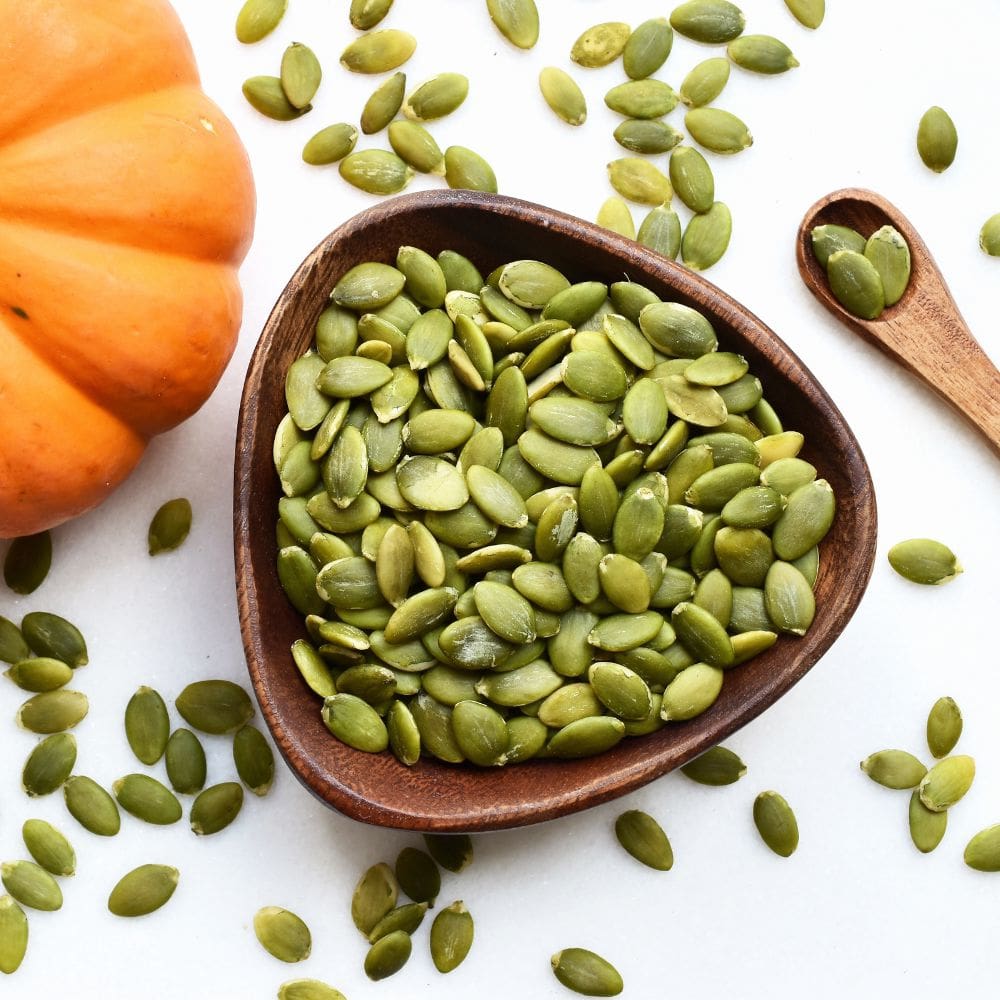
Table of Contents (Quickly Jump To Information)
Are Worms Dangerous for My Flock?
Parasites can be deadly for your flock which is why it’s important to be proactive and preventative. At the very least, it can give your chickens diarrhea and anemia which will make them feel lethargic. Of course, the symptoms all depend on the type of worm that is attacking your pet chicken.
The key is prevention, as with all health issues. We know this, but sometimes we lose track and forget…and then regret it later when there is a problem. So, this is your friendly reminder 😉
You can learn more about parasites here: Chicken Parasites – An Informative Guide to Uninvited Guests. It describes different types of intestinal worms, as well as some external parasites like lice and mites.
Deworming Treat Details
For those trying to raise their chickens organically, then of course pharmaceutical chicken dewormers aren’t ideal. Medicine has its own set of issues. If it comes down to medication, you’ll probably want to consult with a veterinarian.
I developed this fun treat with ingredients that might help your hens expel those nasty critters. This will hopefully prevent them in the future. No one wants to deal with appetite and weight loss in their flock, and we definitely want to avoid any death. So, taking action is important.
Now bear in mind that with many of these ingredients, their effectiveness is merely anecdotal. There’s not a TON of studies to show whether pumpkin seeds, pepper, or herbs will truly leave your hen’s insides squeaky clean of freeloaders.
But I put these things into the category of “can’t hurt, might help.” At the bare minimum, your hens will have fun eating the seeds and gobbling down garlic. And that’s always a good thing!
You should also remember that treats aren’t a meaningful replacement for a quality layer feed that’s formulated to ensure your fluffy butts get all the vitamins and minerals necessary.
Treats should comprise about 10% of your flock’s diet. You should feed treats just a few times a week, or daily in small amounts. I feed my hens the recipe below about once a month (and of course I feed other treats in between time!)
Pumpkin Seed & Cranberry Deworming Treat Recipe
Ingredients (per chicken)
½ c raw shelled pumpkin seeds
2-3 freeze dried or fresh cranberries
1 tsp cayenne pepper
½ cup kale
1 tsp fresh garlic
¼ cup wormwood
¼ cup sunflower seeds (optional)
Directions
Multiply amounts of ingredients based on the amount of chickens you have. Mix all ingredients together and serve as a treat. Be sure to use raw, unsalted, pumpkin seeds and sunflower seeds.
Pumpkin seeds are a popular folk remedy for preventing and curing worms, although it’s not really been studied in chickens.
There was one study done in mice that showed extracts from pumpkin seeds reduced the worm load when fed 8 grams of pumpkin per 1 kg of animal weight.
There have also been studies that showed pumpkin seed oil is good for the urinary tract in humans and might help against tapeworms.
At a bare minimum, chickens love pumpkin seeds, so they’ll enjoy gobbling them down. It’s also important to note that an all-seed diet can cause Vitamin A deficiency, which might cause bumblefoot, so don’t only feed your chickens seeds.
The other main ingredient in this recipe, the cayenne pepper, has long been purported to help humans and animals get rid of worms. The reasoning behind it is that the worms don’t like a chemical constituent in peppers – Capsaicin – and it causes them to detach from their hosts, and chickens can then poop the worms out. This breaks the life-cycle of the worms.
Again, evidence it works to expel worms in chickens is limited, although it has been studied in rats.
Wormwood has long been used as a remedy to prevent and treat worms for nearly as long as humans have been around.
During the Middle Ages, it was the go-to cure because worms find the herb bitter, and choose to not stick around.
It’s also the “active ingredient” in some herbal wormers you’ll find on the market.
Garlic is never a bad thing for chickens, and it’s been shown to help living creatures be healthier and have better immune systems. Parasites also object to the smell and spiciness of garlic, so it’s possible it’ll help your flock stay worm-free as well.
If you want to prevent worms in your chickens, making sure their surroundings are clean and moisture-free is a good place to start. A healthy diet will help keep them in tip-top condition so if they do get a parasite infestation, they have the energy to fight it off.
This treat is a great addition to any feeding plan out there, and you’re chickens will love it as much as mine do!
Tips for Prevention
It’s in everyone’s best interest to avoid a worm infestation. Here are some tips.
- Keep your coop clean
- Give your flock fresh drinking water every day
- Add apple cider vinegar to their water
- Supplement with vitamins and minerals for general health
Types of Worms
There are as many types of worms as there are stars in the sky…okay, that may be an exaggeration – but there are a lot. Here’s a list of some of the common ones with links to learn more if you have such a desire. If in doubt, vets can check for the type of worm eggs so you know what you are treating.
Signs of Worms
- Lack of appetite
- Lethargy
- Pale comb
- Head stretching and shaking or gasping
- Diarrhea
- Coughing
Fun Fact (Bad Fact)
Chickens (and other poultry like turkeys) can get worms by eating an intermediate host. What is that? Well, things like slugs, snails, earthworms, cockroaches, and grasshoppers.
But wait…I thought insects were good protein snacks for my beloved flock!?!? Well, they are…but they can be parasite carriers. It’s just something to be aware of. Some folks walk around scratching their heads trying to figure out what they did wrong when they have a worm problem in their flock. Sometimes it’s not anything you did.
Have a hen who loves treats? (Who doesn’t?!)
Yes, my hens LOVE mealworms!
Maat van Uitert is a backyard chicken and sustainable living expert. She is also the author of Chickens: Naturally Raising A Sustainable Flock, which was a best seller in it’s Amazon category. Maat has been featured on NBC, CBS, AOL Finance, Community Chickens, the Huffington Post, Chickens magazine, Backyard Poultry, and Countryside Magazine. She lives on her farm in Southeast Missouri with her husband, two children, and about a million chickens and ducks. You can follow Maat on Facebook here and Instagram here.

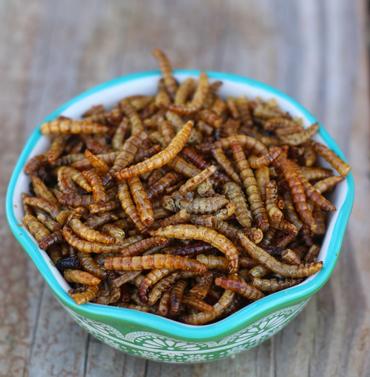
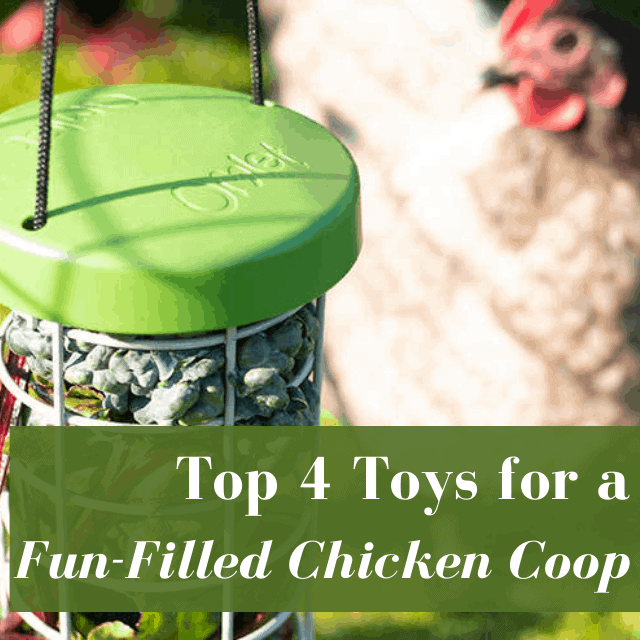
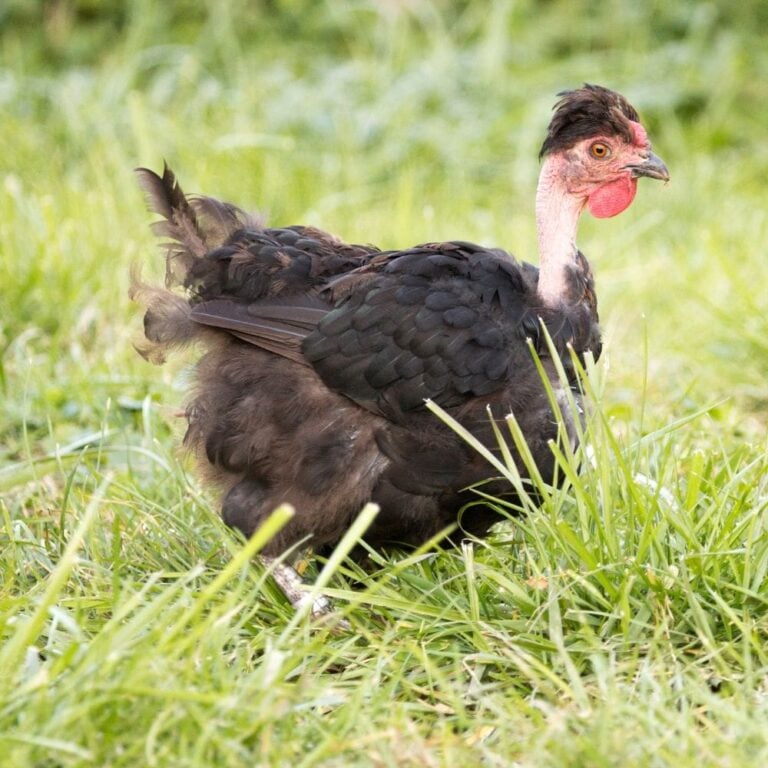
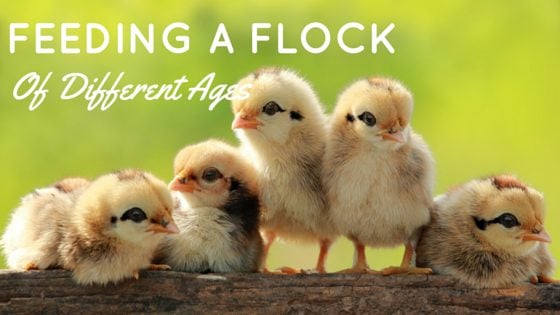
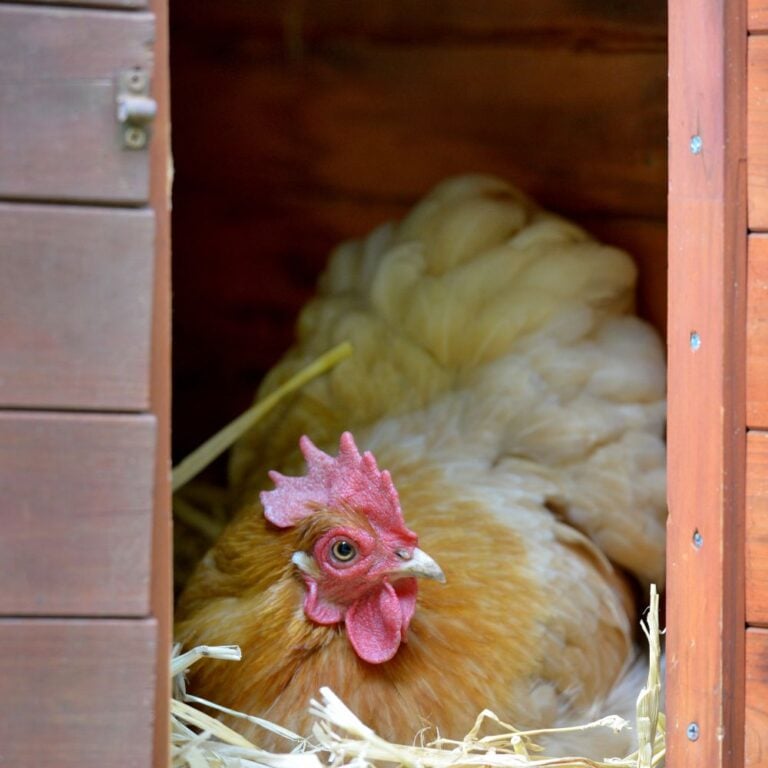
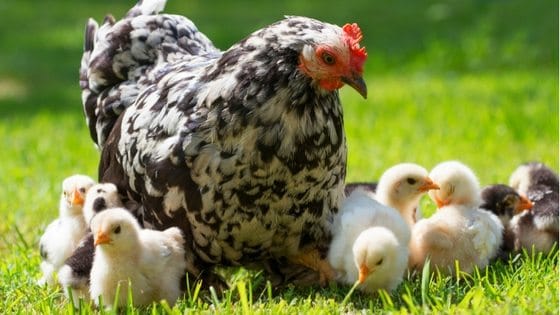
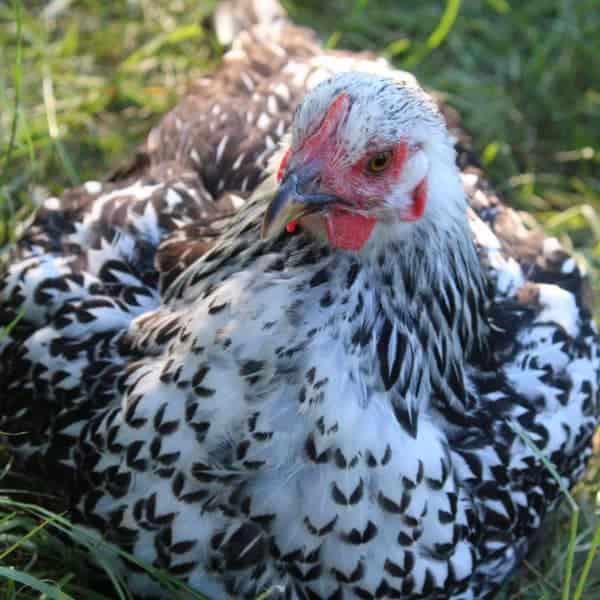
I am having problems finding wood worms. Where can I find this
It’s wormwood – an herb. We’re going to carry it in the shop soon!
Where do you get fresh or dried? Wormwood
We’re going to be carrying it in the store soon!
I always prefer to go the natural route when it comes to anything regarding what my feathered children put in their mouths (“beaks”). Just a quick question: I want to make sure you meant only 2-3 (individual) cranberries per chicken – and not 2-3 oz or 2-3 tablespoons or 2-3 some other measurement. Would you pease clarify this for me? Thanks so much for all your great advice!
Yes, 2-3 per chicken! <3
My hens love salsa. Would this be considered a de-wormer?
If it’s fresh and homemade, the jalapeno might do something. If it’s store bought, then it probably won’t do anything because it’s so over processed. The capsiacin in hot peppers (jalapeno, cayenne, etc) is what the worms hate. Hope this helps!
Thank you, it helps. The salsa is homemade.